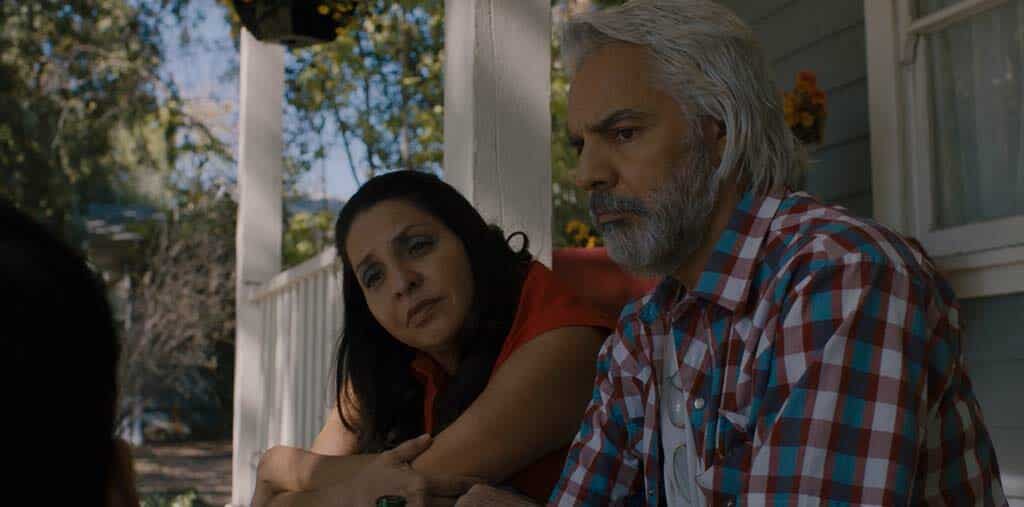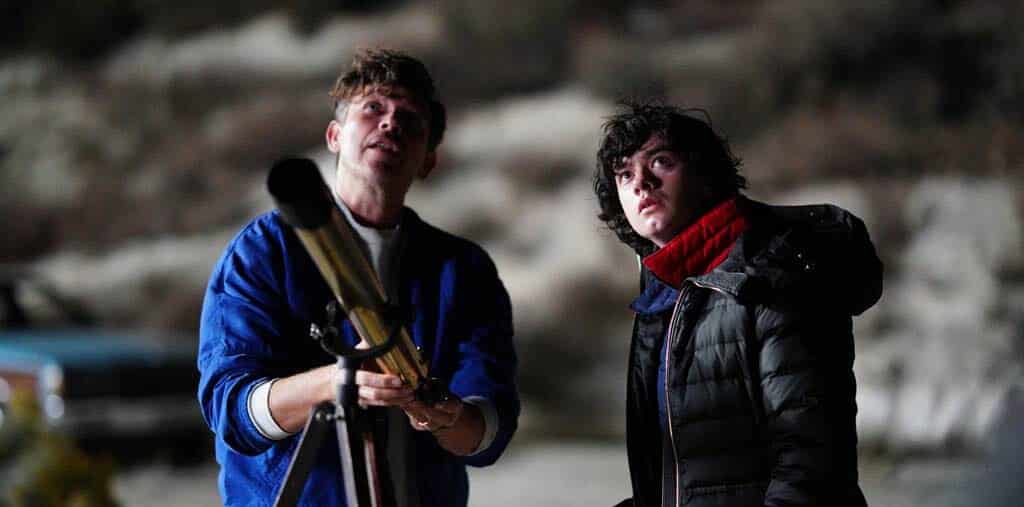As we prepare for the darker skies and brown leaves of fall, what’s a better way to celebrate the end of summer than to watch a film that captures all its warmth? But out of so many, which one to watch? The best answer is Aristotle and Dante Discover the Secrets of the Universe.
From Page To Screen
Based on the novel of the same name by Benjamin Alire Sáenz, Aristotle and Dante Discover the Secrets of the Universe has been a beloved novel since its publication in 2012. The story follows Mexican-American teens Aristotle Mendoza, nicknamed Ari, and Dante Quintana, who quickly connect over swimming and their unusual names during the summer of 1987 in El Paso, Texas. The unlikely friendship between the honest Dante and reserved Ari blossoms as they face the trials of growing up, family, and, above all, identity.

Sáenz’s novel gained acclaim from critics and readers alike, with a standout Stonewall Book Award in 2013. With the announcement of a film adaptation, fans were eager to see the story come to live on the screen. Of course, the concern of whether a film could fully capture the essence of the novel followed the excitement. Director Aitch Alberto readily took on the challenge.
After years of anticipation, Alberto’s adaptation was first shown at the International Toronto Film Festival in 2022 and later came to US theaters on September 8, 2023. Aristotle and Dante had a long journey to reach film audiences, but what exactly makes the story so compelling?
Many Themes, Many Emotions
With the countless coming-of-age films, Aristotle and Dante Discover the Secrets of the Universe is one of the few able to showcase thought-provoking themes. Specifically, the theme of identity encompasses several other topics. One of these is the prevalence of culture.
Culture
Ari and Dante grapple with what it means to be Mexican, given their feelings of isolation from community, and especially Ari’s emotional disconnect from his father. Their concerns reflect a current sentiment of young Mexican Americans who don’t feel “Mexican enough”, mostly because of not speaking Spanish.
The outstanding cast of the film played a role in highlighting the topic of cultural identity. Renowned Mexican actors, including Eugenio Derbez, Eva Longoria, and Veronica Falcón, highlight the importance of having characters embrace the cultural and ethnic themes of a film. Mexican and Latinx audiences can appreciate the authentic representation of the film, especially as we celebrate Hispanic Heritage Month.

Self-Discovery and Queer Identities
Another topic under the guise of identity is self-discovery. The film develops through Ari’s encounters with the world, and we follow his conflicting sentiments of being a teenager. Ari is frustrated, ambitious, afraid, brave, loving, and cruel all at the same time. He unfolds as an incredibly complex character, and viewers can find a lot of their own complicated qualities in Ari. Part of Ari’s own conflict with identity is the unraveling queer identity.
The slowly flourishing love between Dante and Ari scares Ari, who says he has no attraction to boys like Dante does. Bringing her personal experiences with embracing her queer identity, director Aitch Alberto approached the queer themes with honesty and patience. Ari and Dante understanding their feelings is not an effortless journey, but Alberto nonetheless upholds the hopeful part of it.

Worth the Watch?
A simple summary of the interacting themes hardly does justice to the nuanced queer Latinx story Aristotle and Dante Discover the Secrets of the Universe has to offer. So, is the film worth a trip to the movies? Absolutely.
Leading stars of the film Max Pelayo as Aristotle and Reese Gonzales as Dante wholeheartedly adopt their characters with immense actor chemistry. Beyond the actors, the setting and cinematography of the film make for an immersive viewing experience. Swimming pools, the desert heat, and stargazing radiate all good summer vibes.

The domestic sphere is felt as well. Scenes of Dante and Ari’s homes capture the distinctive lives of their families and invite the viewer to sense the coexistence of familial love and tension.
A great soundtrack accompanies the film, with songs like Ritchie Valens’ “La Bamba” and “Tu Casa Nueva” by El Ultimo Vecino, perfect for a coming-of-age film.
All in all, the overlapping themes of identity, culture, self-discovery, family, and sexuality open the conversation for viewers themselves. Whether it’s questions about the self or seeking to address family disconnect, Aristotle and Dante can be the guide. Perhaps most important to the history of queer love in film is the happy ending for Ari and Dante.
And book lovers, don’t fret! While changes from the book to the film are present, the wonderful and unique story of Sáenz’s novel remains.
Aristotle and Dante Discover the Secrets of the Universe is now in theaters. Use the film’s website here to find a show in a theater near you!














